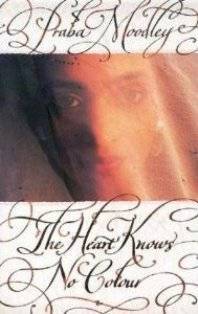Praba Moodley

Praba Moodley (1965-) was born in Pietermaritzburg. A lover of books from an early age, Moodley grew up on a strong diet of Wee Willie Winkie and her childhood favourite, the Wizard of Oz series by L.Frank Baum. Her writing was born out of a great passion for literature and a gap in the market for a creative focus on the history of South African Indians. As a teenager, Moodley was disenchanted with the lack of representation given to the histories of the Indian community.
At the time the Apartheid government emphasised the teaching of Dutch history with very little exploration of Indian concerns.
She officially began writing in her 20s, drawing the bulk of her research from the Indian Opinion, a leading newspaper of its the time, which had stories that dealt with political, historical and most importantly – personal issues. In addition, she learnt much from the academic publications that were being written at the University of Durban-Westville, now part of the University of KwaZulu-Natal (UKZN).
A self-taught writer, Moodley had difficulty in finding a publisher. Her drafts received lukewarm responses from local and international publishers who did not feel that there was a market for stories dealing with the indentured Indian experience. Following the help of Lyn Smith, the head librarian at the main library in Durban who offered her tips, advice and a critical perspective, Moodley received her first big break. Her manuscript was well received by Kwela Books who remains the sole publisher of all four of her novels.
A fifth generation South African Indian, Moodley takes great pride in her heritage. Described as historical sagas, her novels follow the exploits of indentured Indians and their descendants across multiple generations. Her concerns involve romance, the abuse of women, alcoholism, issues of class, language, skin colour, and culture, the exploration of identity and examination of sexual orientation.
Moodley continues to live and operate within the Pietermaritzburg-Durban area. She is currently employed as the Principal Academic Administrative Officer in the College of Law and Management Studies at the University of KwaZulu-Natal. In addition to her novels, she has had articles featured in Elle and Oprah Magazine. Moodley has also participated in the 2009 Words on Water festival at DUT and the 2014 Time of the Writer Festival.
< b>Selected Works
from The Heart Knows No Colour (2003:16)
“Hurry up, hurry up, we don’t have all day,” a strange voice barked.
Small boats had been sent out to the ship to bring the immigrants ashore. After a couple of months of seasickness and bouts of terrible illness, which came with living on an overcrowded ship, relief was clearly written on their faces; in their haste to set foot on land, the newcomers virtually fell over one another.
On shore, confusion reigned, for many could not understand English. First, they had to undergo a medical examination and several tests. They were handed a strange liquid in bottles and told to bathe with it, to cleanse them from head to toe after months of travel. Chumpa felt like a cow on show as a white doctor peered into her ears and mouth, and a nurse checked her hair for lice.
from A Scent So Sweet (2006)
That Saturday evening, a crowd of people from the local community sat cross-legged on the lawn of the temple entrance, ready to pull pennies from deep within their pockets. Lamps were lit to add to the twinkling stars that had gathered to watch under the summer moon as the musicians got out their instruments: mridangam, cymbals, veena and flute. They began to play, accompanying a few singers who sang bhajans and then some lighter songs for entertainment.
Lalita made her appearance dressed in her dancing attire: an emerald-silk dhoti which fit her snugly above the ankles and pleated along her legs. A frilled silver brocade cloth fell from her waist to her knees, below a snugly fitting bodice. She wore many bangles, and anklets of small bells. Her long hair was plaited, with marigolds threaded through the plait. She never forgot the dot in the centre of her forehead. The outfit was a sixteenth-birthday present from Mrs Raidoo, all the way from her relatives in India.
Lalita began by performing the traditional Namaskara, taught to her by Mrs Raidoo. Every time she began and ended a performance, obeisance was offered to Mother Earth: she sought pardon for all the heavy foot-thumping that would be part of the performance, and blessings, so that the performance would be executed flawlessly. Lalita brought her legs together and turned in a circle, both hands together, pointing in eight directions as taught and finally down towards Mother Earth. She then moved into a squat position, touching the floor and then her eyes in complete reverence.
from Follow Your Heart (2009:34)
Supper consisted of piles of freshly made puri and a broad bean curry which Geeta had insisted on preparing and bringing over to her sister’s home in a huge pot tied up with a tablecloth to hold the lid in place during the journey. It was a jovial affair, filled with laughter, and Chumpa found herself surrounded by her great-grandchildren, chattering away in English and Hindi. The days of conversing wholly in Hindi were slowly slipping away, but Chumpa hung onto the language, and the Hindi vernacular her great-grandchildren had picked up came solely from her.
Bibliography
2003. The Heart Knows No Colour. Cape Town: Kwela Books 2006. A Scent So Sweet. Cape Town: Kwela Books 2009. Follow Your Heart. Cape Town: Kwela Books 2014. The Ties That Bind. Cape Town: Kwela Books
She officially began writing in her 20s, drawing the bulk of her research from the Indian Opinion, a leading newspaper of its the time, which had stories that dealt with political, historical and most importantly – personal issues. In addition, she learnt much from the academic publications that were being written at the University of Durban-Westville, now part of the University of KwaZulu-Natal (UKZN).
A self-taught writer, Moodley had difficulty in finding a publisher. Her drafts received lukewarm responses from local and international publishers who did not feel that there was a market for stories dealing with the indentured Indian experience. Following the help of Lyn Smith, the head librarian at the main library in Durban who offered her tips, advice and a critical perspective, Moodley received her first big break. Her manuscript was well received by Kwela Books who remains the sole publisher of all four of her novels.
A fifth generation South African Indian, Moodley takes great pride in her heritage. Described as historical sagas, her novels follow the exploits of indentured Indians and their descendants across multiple generations. Her concerns involve romance, the abuse of women, alcoholism, issues of class, language, skin colour, and culture, the exploration of identity and examination of sexual orientation.
Moodley continues to live and operate within the Pietermaritzburg-Durban area. She is currently employed as the Principal Academic Administrative Officer in the College of Law and Management Studies at the University of KwaZulu-Natal. In addition to her novels, she has had articles featured in Elle and Oprah Magazine. Moodley has also participated in the 2009 Words on Water festival at DUT and the 2014 Time of the Writer Festival.
< b>Selected Works
from The Heart Knows No Colour (2003:16)
“Hurry up, hurry up, we don’t have all day,” a strange voice barked.

Small boats had been sent out to the ship to bring the immigrants ashore. After a couple of months of seasickness and bouts of terrible illness, which came with living on an overcrowded ship, relief was clearly written on their faces; in their haste to set foot on land, the newcomers virtually fell over one another.
On shore, confusion reigned, for many could not understand English. First, they had to undergo a medical examination and several tests. They were handed a strange liquid in bottles and told to bathe with it, to cleanse them from head to toe after months of travel. Chumpa felt like a cow on show as a white doctor peered into her ears and mouth, and a nurse checked her hair for lice.
from A Scent So Sweet (2006)
That Saturday evening, a crowd of people from the local community sat cross-legged on the lawn of the temple entrance, ready to pull pennies from deep within their pockets. Lamps were lit to add to the twinkling stars that had gathered to watch under the summer moon as the musicians got out their instruments: mridangam, cymbals, veena and flute. They began to play, accompanying a few singers who sang bhajans and then some lighter songs for entertainment.
Lalita made her appearance dressed in her dancing attire: an emerald-silk dhoti which fit her snugly above the ankles and pleated along her legs. A frilled silver brocade cloth fell from her waist to her knees, below a snugly fitting bodice. She wore many bangles, and anklets of small bells. Her long hair was plaited, with marigolds threaded through the plait. She never forgot the dot in the centre of her forehead. The outfit was a sixteenth-birthday present from Mrs Raidoo, all the way from her relatives in India.
Lalita began by performing the traditional Namaskara, taught to her by Mrs Raidoo. Every time she began and ended a performance, obeisance was offered to Mother Earth: she sought pardon for all the heavy foot-thumping that would be part of the performance, and blessings, so that the performance would be executed flawlessly. Lalita brought her legs together and turned in a circle, both hands together, pointing in eight directions as taught and finally down towards Mother Earth. She then moved into a squat position, touching the floor and then her eyes in complete reverence.
from Follow Your Heart (2009:34)
Supper consisted of piles of freshly made puri and a broad bean curry which Geeta had insisted on preparing and bringing over to her sister’s home in a huge pot tied up with a tablecloth to hold the lid in place during the journey. It was a jovial affair, filled with laughter, and Chumpa found herself surrounded by her great-grandchildren, chattering away in English and Hindi. The days of conversing wholly in Hindi were slowly slipping away, but Chumpa hung onto the language, and the Hindi vernacular her great-grandchildren had picked up came solely from her.
Bibliography
2003. The Heart Knows No Colour. Cape Town: Kwela Books 2006. A Scent So Sweet. Cape Town: Kwela Books 2009. Follow Your Heart. Cape Town: Kwela Books 2014. The Ties That Bind. Cape Town: Kwela Books